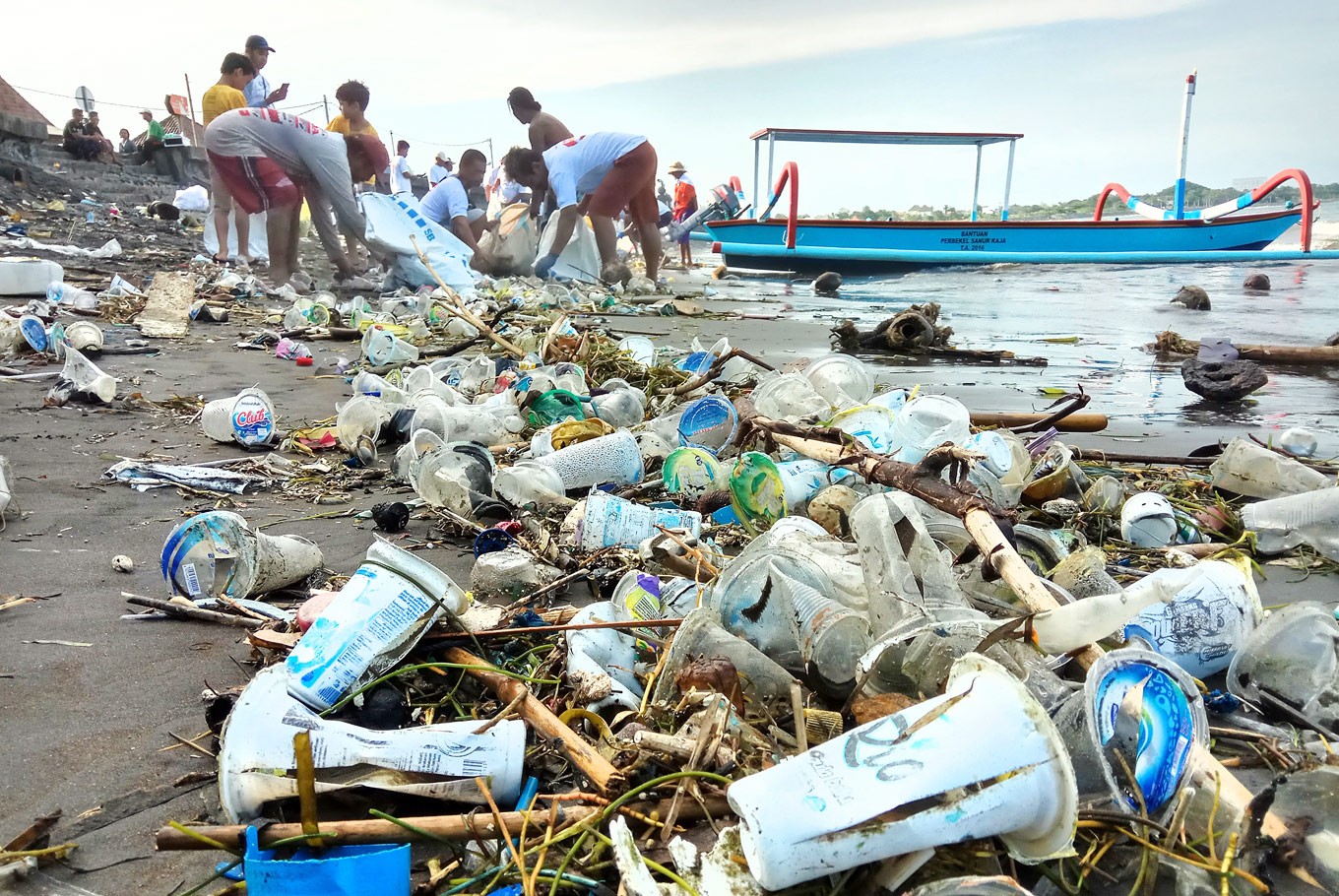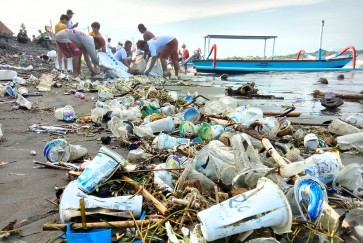Popular Reads
Top Results
Can't find what you're looking for?
View all search resultsPopular Reads
Top Results
Can't find what you're looking for?
View all search resultsCircular economy for plastics: What is at stake for ASEAN?
Change text size
Gift Premium Articles
to Anyone
 People living near Matahari Terbit Beach in Sanur, Bali, work together to clear trash, mainly plastic bottles and food packaging, from the beach. The beach is known as one of the best spots to enjoy sunrises in Bali. However, waste has become a major problem, putting tourists off visiting the beach. (JP/Zul Trio Anggono)
People living near Matahari Terbit Beach in Sanur, Bali, work together to clear trash, mainly plastic bottles and food packaging, from the beach. The beach is known as one of the best spots to enjoy sunrises in Bali. However, waste has become a major problem, putting tourists off visiting the beach. (JP/Zul Trio Anggono)
T
he Bangkok Declaration on Combating Marine Debris in ASEAN Region was adopted by leaders of the ASEAN last month, welcoming the ASEAN Framework of Action on Marine Debris. This follows previous commitments made by the leaders on promoting sustainable consumption and production to reduce marine plastic debris.
Why are the leaders suddenly concerned about the use of plastic, despite its multiple economic benefits? The material is cheap, lightweight and easy to make. These qualities have led to a boom in the production of plastic, a petroleum byproduct, for the rapid uptake by industrial and domestic consumers. China is the world’s biggest contributor of plastic waste, responsible for 8.9 million metric tons annually, followed by five Southeast Asian countries, namely Indonesia, the Philippines, Vietnam, Thailand and Malaysia. Collectively, the five countries generate 8.9 million mt of mismanaged plastic waste every year. Indonesia, for instance, contributes 3.22 million mt a year, with half ending up in the seas.
The huge quantity of waste in the oceans is proving fatal to creatures both large and small: sea turtles, dolphins, even whales. And it not just marine life that is being killed by plastics. Birds and land animals are also mistaking synthetic waste material for food, often dying slow, excruciating deaths as a result.
The region’s ability to cope with solid waste in general and plastics in particular is already overwhelmed. Only 9 percent of the 9 billion tons of plastics produced is recycled. If the current consumption and waste management practices continue, by 2050 there will be around 12 billion mt of plastic waste in landfills and oceans. In addition, if the growth in production continues as usual, then the plastic industry may account for 20 percent of the world’s total oil consumption, thus contributing to climate change. The scale of the challenge is daunting, and plastic use has become a full-grown crisis, drawing the attention of ASEAN leaders.
Realizing the severity and the urgency of the problem, earlier this year, countries like Thailand, Indonesia and Malaysia started implementing policy frameworks aimed at introducing a blanket ban of several types of plastics by 2025. The policy road maps coincide with recent efforts by private retailers of products and services who are implementing their own measures to recycle.
These combined efforts have resulted in innovations like the use of plant based and biodegradable polymers as well as improved technologies for recycling plastics and reducing plastic toxicity, thus laying the foundation for a circular economy.
In a circular economy, a scarce resource is used optimally through reuse, repair and recycling. This compares with the wasteful linear extractive system of manufacturing and consumption, in which products are disposed of quickly after use. Three building blocks support the circular economy, namely material and product design, new business models and enabling policy conditions. However, the transition to a circular economy in developing countries of Southeast Asia will be very slow due to many existing barriers unless there are targeted policy interventions.

















